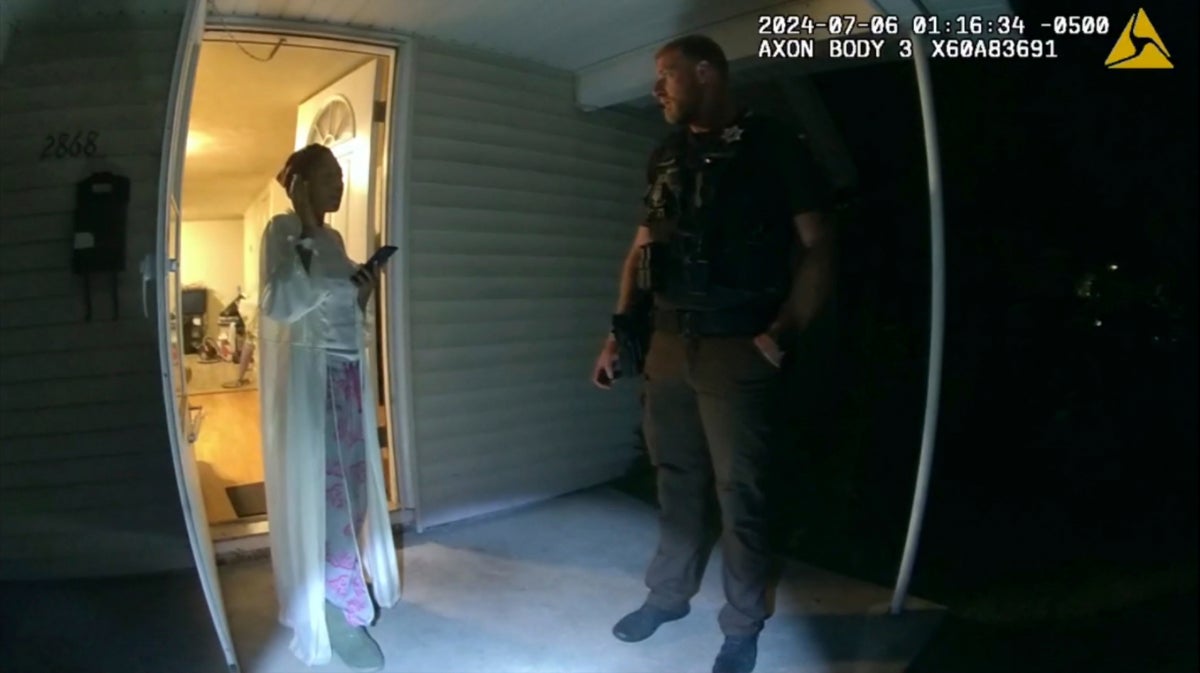
Support truly
independent journalism
The Illinois sheriff whose deputy shot Sonya Massey in her home after she called 911 for help said Thursday that it will take the rest of his professional life to rebuild trust in his agency.
Former Sangamon County Sheriff's Deputy Sean Grayson killed Massey, a 36-year-old Black woman, over a pan of hot water on July 6. In an interview with The Associated Press, Sheriff Jack Campbell said he was horrified by the body camera video that shows Grayson, who is white, shooting Massey just below the eye.
“We will spend the rest of my career, certainly, trying to mend these fences and build bridges to the community to establish trust again,” Campbell said in his office in downtown Springfield, just blocks from the historic home of Abraham Lincoln. “When they call us for help, they expect us to help. Sean Grayson did not help Sonya Massey. And he alone is responsible for his actions.”
Grayson, 30, is being held without bond on charges of first-degree murder, aggravated battery with a firearm and official misconduct. He has pleaded not guilty.
Grayson and another deputy responded to Massey's home in the early morning to investigate a suspected prowler.
Inside the home, there was lighthearted conversation as Grayson directed that a pan of water be removed from a flame on the stove, according to body camera video. Massey, who struggled with mental health issues, calmly said, “I rebuke you in the name of Jesus,” prompting Grayson to pull his 9 mm pistol, threaten to shoot her in the face and order her to drop the pan before firing three times.
Outside experts as well as Campbell's internal investigation found that Grayson had several nonlethal options if he felt threatened by Massey or the pot of hot water. Campbell said Grayson had been trained in crisis intervention as well as mental health crisis response and had no use-of-force complaints against him.
“We do not understand why he snapped. He acted outside the scope of his authority as a police officer, outside our policies and procedures and outside the law,” Campbell said. “It is something that we live with and try to figure out every day. We’ll probably never know why he did that.”
Campbell, 60, serving his second term as sheriff, is a third-generation Sangamon County officer. His great-uncle, Hugh Campbell, was sheriff from 1959 to 1963 and again from 1971 to 1975. His father, Jim, rose to sergeant. Jack Campbell retired in 2016 after two decades as a deputy. He was defeated in a 2014 campaign for sheriff but won in 2018.
Massey's family has repeatedly called for Campbell's resignation, saying Grayson should never have been given a badge. He was ejected from the Army a decade ago for the first of two drunken-driving convictions within a year and his employment history — six law enforcement jobs in four years — raised questions.
But Campbell, who can't recall his interview with Grayson before he was hired in May 2023, said that DUIs don't disqualify someone from law enforcement and he knew of no complaints about Grayson from his previous jobs, including a disciplinary brush in the Logan County Sheriff's Office in which he disobeyed an order to halt a high-speed chase. He was certified by state law enforcement authorities and Campbell sent him through the standard 16-week training academy, even though his previous training would have been sufficient.
The sheriff attended a listening session with the community this week and, facing a hostile crowd, apologized, saying: “I stand here today before you with arms wide open and I ask for your forgiveness." But he reiterated his intention to stay in the job.
Massey's killing has once again spotlighted cases of Black people killed in their homes by police. The Sangamon County Sheriff's Department has 195 employees, including 72 sworn officers. The office said 10.25% of them are members of minority groups but did not provide a breakdown. Among the county's population of 193,500, census figures show 14% are Black, 3% Latino and 2.4% Asian.
Asked if his department's makeup reflects the community, Campbell said, “What I feel is that we are absolutely trying to get those numbers up.” A recruitment team of deputies who are minorities is active and department representatives regularly engage community groups, seeking applicants.
Since Massey's killing, family, friends and supporters and activists nationally say Black women are wary of calling the police for help. Her mother, Donna Massey, said in a 911 call the day before Sonya Massey's death that her daughter was having a mental health crisis. But the elder Massey said she didn't want responding officers to hurt her. “I'm scared of the police,” she said.
“My message is that we’re still the same sheriff’s office. The person that did this is in jail. He’s going to face justice in the criminal justice system,” Campbell said. “And my job now is to hire people and train them to make sure this doesn’t happen again.”







